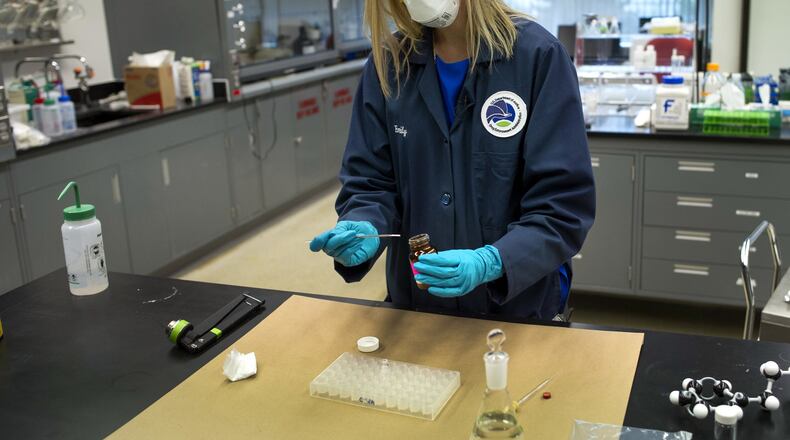Georgia’s Prescription Drug Monitoring Program would be improved, access to a life-saving drug that reverses overdoses would be expanded and methadone clinics would face more oversight under an omnibus bill state lawmakers are crafting, The Atlanta Journal-Constitution has learned.
Republican state Sen. Renee Unterman of Buford told the AJC Friday she and other senators plan to introduce an omnibus bill in the coming weeks to help combat a deadly painkiller and heroin epidemic now afflicting Georgia and the rest of the nation. Nationwide, opioid overdose deaths rose by more than 15 percent between 2014 and 2015, from 28,647 to 33,091, according to the Centers for Disease Control and Prevention. The epidemic is also increasing crime and tearing up families in Georgia, said Unterman.
“The social implications are huge,” said the senator, who recently led an Opioid Abuse Senate Study Committee, a panel that helped shape her forthcoming legislation.
Among other things, the panel recommended this week that:
• More physicians and pharmacists who prescribe opioids be required to participate in the state’s Prescription Drug Monitoring Program, a database aimed at preventing duplicative prescribing and overprescribing of powerful painkillers. Further, the system should be updated every 24 hours to prevent addicts from “doctor-hopping,” Unterman said.
• Addiction treatment centers that dispense methadone and other opioids would face additional state regulations. Alarmed by an increasing number of these narcotic treatment centers – particularly in Northwest Georgia – state lawmakers have been studying ways to bolster oversight. In April, Gov. Nathan Deal signed a bill that prohibits the state from licensing new ones for a year.
• Access to nalaxone — which reverses opioid overdoses — would be made more available. Last month, Deal directed the Georgia Pharmacy Board to remove naloxone from the state’s list of prohibited drugs and directed the Public Health Department to allow pharmacists to dispense it over the counter. Unterman said those changes would be made permanent under the legislation she and other lawmakers are drafting.
About the Author
The Latest
Featured



